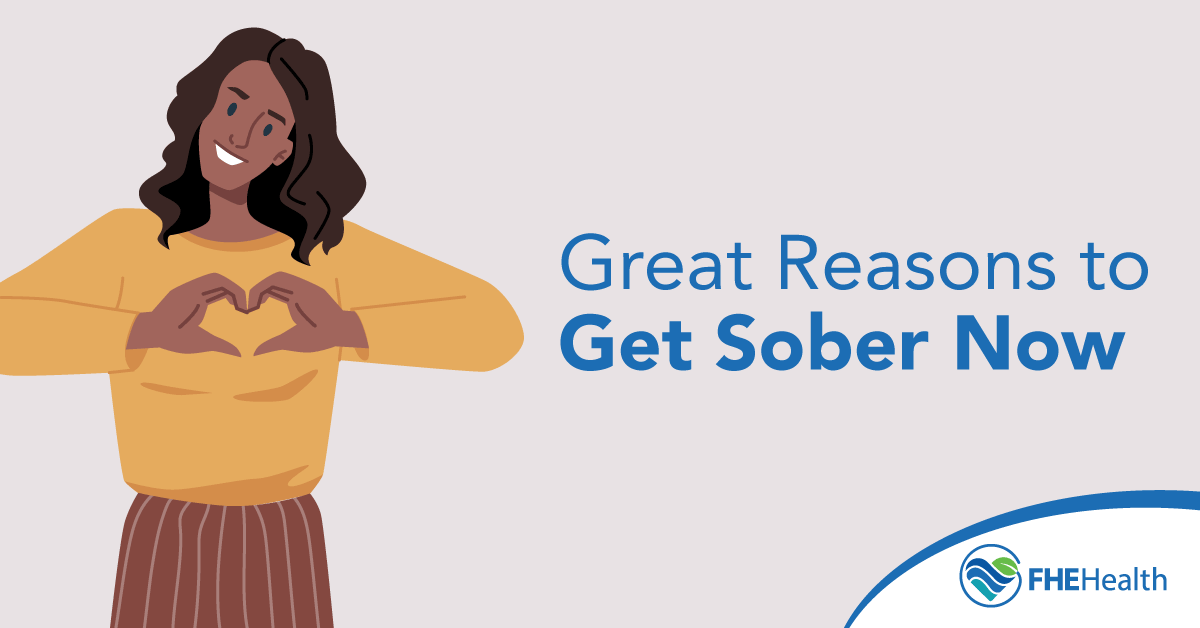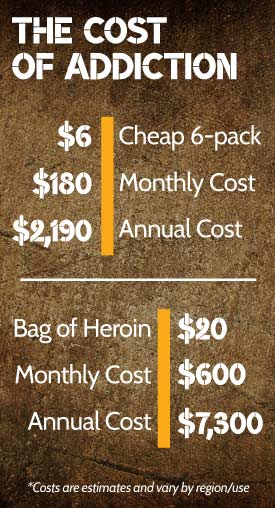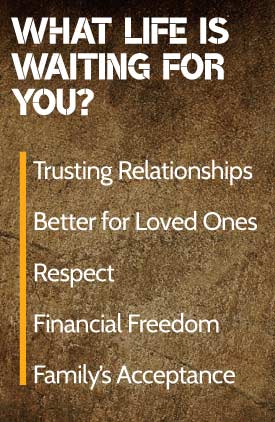
When addiction takes over, it destroys almost every aspect of an individual’s life. It doesn’t take long before the need to drink or use becomes your main priority, affecting your performance at work, being present for your loved ones, or keeping up with your routines. For those feeling stuck in an endless cycle of substance abuse, getting sober is the best option. Taking that first step towards freedom is never easy, so here are nine reasons to leave drugs and alcohol behind permanently.
Why Get Sober Now?
Substance abuse remains a growing health issue, affecting millions of Americans each year. According to the Substance Abuse and Mental Health Services Administration (SAMHSA), approximately 17.1 percent of people aged 12 and older struggled with addiction in 2023.
The impact of addiction extends beyond physical health, affecting relationships and financial stability. More often than not, families and loved ones are the first to experience an addiction’s collateral damage in the form of financial and emotional stress. Despite the challenges, recovery is possible with proper support and motivation.
1. Addiction Damages Your Health
There are zero long-term benefits of prolonged drug and alcohol abuse. In 2023, the World Health Organization went as far as to say that safe drinking levels do not exist. Using alcohol, even as a “moderate” or “social” drinker, can have a negative health impact. Substance use has been linked to several health issues, including heart problems and liver cirrhosis, and increases the risk of developing cancer. Additionally, those in active addiction are more vulnerable to infectious diseases through risky behaviors and weakened immune systems.
Users commonly experience symptoms of mental health issues such as anxiety, depression, and mood instability. And long-term abuse can worsen or even trigger severe mental illnesses such as psychosis or bipolar disorder.
2. Substance Abuse Hurts Everyone Around You
Active addiction makes it difficult to think or act rationally. Decisions made while under the influence often hurt those around you. It’s not uncommon for individuals to wake up after an episode of intoxication feeling embarrassed or finding that friends are avoiding them. Drinking to the point of “blackout” makes it even worse as you may not remember your actions.
That’s not to say that sober people never make mistakes. However, you’ll learn how to address mishaps more positively in sobriety.
Addiction is tough. It might be tougher on your loved ones than on you. However, once you start embracing recovery, you can also start working on rebuilding those damaged relationships with friends and family.
3. It’s An Expensive Habit
The costs associated with drinking and drugging only increase over time. When you first begin using it, the price of getting that desired high is somewhat minimal. However, over time, tolerance builds up, and it requires more of the substance to achieve anything remotely similar to what you are looking for.
Maintaining a drug or alcohol addiction can cost anywhere from 20$ to 200$ per day or more. Depending on how severe the addiction problem is and the type of drug used, an individual can easily spend hundreds, if not thousands, of dollars each week feeding their habit.
With drugs such as heroin and fentanyl, once in the grip of addiction, the individual can’t simply “cut back” for a couple of days or take a few days off to save money, as intense withdrawal symptoms come on quickly. Most people suffering from a substance use disorder (SUD) often use just to feel “normal” and function throughout the day. As time goes on, you may forgo buying food, paying bills, or even renting in favor of spending the money on drugs.
4. Addiction Is a Full-Time Job
A well-known 12-Step saying goes, “Once you become a pickle, you cease living as a cucumber.” It may sound like a silly cliché, but there is truth to it. Those who suffer from substance and alcohol use disorder pour all their energy into maintaining the habit while disregarding their well-being. Individuals can spend each day fully engulfed by thoughts of achieving their next high, acquiring the funds to get high, and then repeating the cycle endlessly. It’s a destructive and unfilling full-time job lacking in benefits.
5. Recovery Shows You Who Your Friends Are
 When using, people tend to hang around other users. Like most people, drug and alcohol users come together over a common bond. In this case, that bond is their drug of choice or favorite late-night bar. However, if the substance is the one thing you have in common with your group of friends, do they truly have your best interest at heart? Will they be there for you in a crisis?
When using, people tend to hang around other users. Like most people, drug and alcohol users come together over a common bond. In this case, that bond is their drug of choice or favorite late-night bar. However, if the substance is the one thing you have in common with your group of friends, do they truly have your best interest at heart? Will they be there for you in a crisis?
Chances are the answer to those questions is no. Friendships in sobriety, by comparison, are more solid and have the potential to survive hardship. Friendships should be based on mutual respect and genuine care for one another. When it comes to “party” friends, those relationships tend to fade once one person chooses to get sober. In some cases, friend groups centered around using or drinking may try to dissuade one another from seeking sobriety.
6. Sober People Are Seen as Trustworthy
Everyone wants to feel valued by their friends and peers. However, it’s hard to trust people who are always under the influence. Even when you believe you are concealing your vices, your friends and family likely know something is wrong. Furthermore, when you are high or drunk, you are more likely to say hurtful things, break promises, or act in ways others view as “unpredictable.”
Close friends, spouses, or family members may hesitate to write you off for struggling with addiction. But they might start distancing themselves. Eventually, addiction could cost you potential job opportunities or valuable social connections.
Recovery from substance abuse can restore and even increase your standing in the community. While there’s still a stigma around drug and alcohol addiction, there are many who see overcoming such challenges as inspirational. Working on your recovery is a great way to earn respect, rebuild trust, and set you on the right path to making better decisions.
7. It’s a Downward Spiral
 Unfortunately, drug and alcohol abuse quickly turns into a never-ending cycle of harm. While drinking is perceived as socially acceptable, alcohol addiction can be just as, if not more, damaging than illicit substance use. The longer you stay stuck in the never-ending cycle of substance abuse, the harder it will be to stop.
Unfortunately, drug and alcohol abuse quickly turns into a never-ending cycle of harm. While drinking is perceived as socially acceptable, alcohol addiction can be just as, if not more, damaging than illicit substance use. The longer you stay stuck in the never-ending cycle of substance abuse, the harder it will be to stop.
Take a moment to reflect on your journey with substance use. Consider those mornings wasted on hangovers, those commitments you may have missed, the money wasted, or the times you couldn’t be fully present for your loved ones.
Addiction can only get worse. It doesn’t get easier or happier. It doesn’t get cheaper. And your health will not improve while you’re still using. The idea that you need to wait until hitting some undefinable “rock bottom” before getting help is just a myth. You don’t have to lose everything before choosing a better life for yourself.
8. Substance Abuse Is Life-Threatening
As the number of fatal overdoses has been steadily growing over the past decade, the use of illicit drugs could be compared to playing “Russian roulette.” The CDC reported that in 2023 alone, 105,007 Americans lost their lives to drug overdoses. It’s no exaggeration to say that a decision to get sober today could mean the difference between life and death.
Reach Out for Help
At FHE Health, our medical and clinical team has helped many people overcome substance abuse and co-occurring mental health issues, through a combination of therapies, medications, and healthy coping skills. Don’t wait another day to get sober. Contact us today to begin your journey toward a happier and healthier tomorrow.






